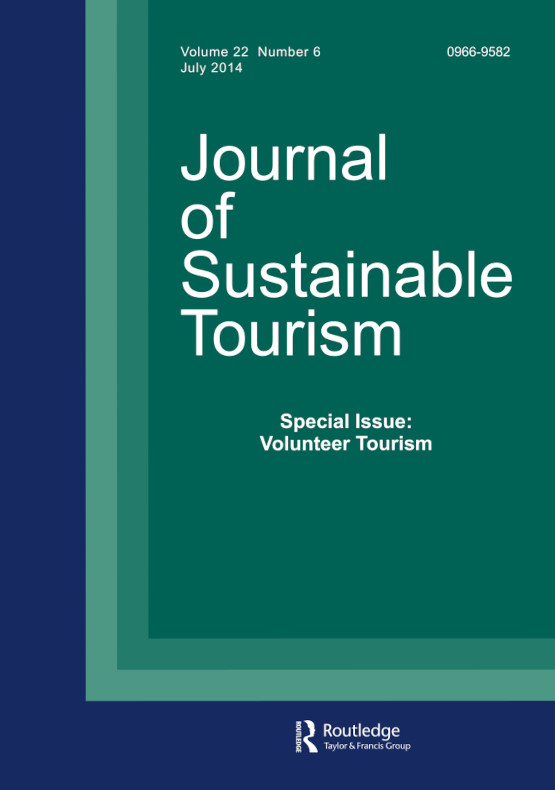Recasting sustainable summer holidaying: scripts, time experiences, freedom, place change and environmental imprints
IF 6.9
2区 管理学
Q2 GREEN & SUSTAINABLE SCIENCE & TECHNOLOGY
引用次数: 0
Abstract
In the summer of 2020, COVID-19 border closures, travel restrictions, infection risks and other uncertainties forced many people to cancel or adapt their holiday plans. This disruption created an exceptional context to study home-based holidaying experiences, representing a departure from pre-pandemic habits and routinely rehearsed summer holiday scripts. Responding to a longstanding bias in tourism research towards (high-carbon) international travel and a neglect of near-home holidaying, an explorative quantitative survey elucidated what novel or altered experiences may disclose about summer holidaying attitudes and transitions towards more sustainable forms of tourism. Theoretically informed by conceptualisations of holiday time, place change, role change, and rou-tinisation of holiday practices, a SEM analytical framework revealed two primary inclinations. One was receptive to summer home holidaying and was associated with recognition of the environmental footprint of regular leisure travel and a willingness to recast vacation plans accordingly. The other was averse to home-based holidaying, driven by the view that it was unfulfilling and by a desire to resume international travel when restrictions were eased.重塑可持续的夏季度假:脚本、时间体验、自由、地点变化和环境印记
2020 年夏天,COVID-19 边境关闭、旅行限制、感染风险和其他不确定因素迫使许多人取消或调整他们的度假计划。这种干扰为研究以家庭为基础的度假体验创造了一个特殊的环境,这代表着与大流行前的习惯和例行排练的暑假脚本的背离。针对旅游研究中长期以来对(高碳)国际旅游的偏见和对近家度假的忽视,一项探索性的定量调查阐明了新颖或改变的体验可能揭示的夏季度假态度以及向更可持续的旅游形式的转变。从假期时间、地点变化、角色变化和假期实践 "乡村化 "的概念出发,一个 SEM 分析框架揭示了两种主要倾向。一种是接受夏季居家度假,这与认识到常规休闲旅行对环境的影响并愿意相应地重新制定度假计划有关。另一种倾向是不喜欢在家度假,认为这样做没有成就感,并希望在限制放宽后恢复国际旅行。
本文章由计算机程序翻译,如有差异,请以英文原文为准。
求助全文
约1分钟内获得全文
求助全文
来源期刊

Journal of Sustainable Tourism
Multiple-
CiteScore
23.10
自引率
8.90%
发文量
91
期刊介绍:
The Journal of Sustainable Tourism advances critical understanding of the relationships between tourism and sustainable development. The journal publishes theoretical, conceptual and empirical research that explores one or more of the economic, social, cultural, political, organisational or environmental aspects of the subject.
The Journal of Sustainable Tourism encourages critical views, as well as new ideas and approaches in relation to the theory and practice linking tourism and sustainability.
 求助内容:
求助内容: 应助结果提醒方式:
应助结果提醒方式:


